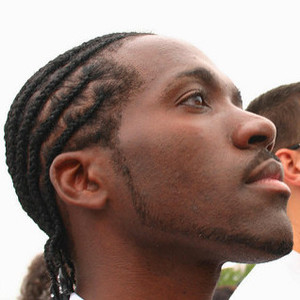To work in many occupations, people need to get a license. Licenses are issued by states and usually require some kind of education or training, test, and/or fee. Licensing exists to protect consumers from untrained, unqualified workers. But there’s another side to licensing. Listen to learn about how licensing also offers economic benefits to people in licensed professions as it keeps others out of the job market.
Listen to the story
STEVE INSKEEP: From your license to drive, let’s go now to a license to work. Decades ago, one in 20 workers needed licenses to do their jobs. Today, it’s one in three – everyone from doctors to interior designers and manicurists, in some states. The requirements are a problem for millions of Americans seeking work. Here’s Jacob Goldstein, from NPR’s Planet Money team.
JACOB GOLDSTEIN: A few years ago, Jestina Clayton started a hair braiding business in her home in Centerville, Utah. She got to stay home with her kids. And in good months, she made enough to pay for groceries. She even put an ad on a local website. Then one day she got an email from a stranger who had seen the ad.
JESTINA CLAYTON: It said, it’s illegal in the state of Utah to do any kind of extensions without a cosmetology license. And I thought, no way. I responded, I said, go ahead and report me.
GOLDSTEIN: Just to be sure, Jestina called the state licensing office. She found out that she did need a license – and that to get it, she’d have to spend more than a year in cosmetology school. Tuition would cost $16,000 or more. And the schools taught little or nothing about the African-style hair braiding that Jestina learned growing up in Sierra Leone.
CLAYTON: I was really upset. You know, who am I threatening here? I did a lot of talking to my husband. He listened.
GOLDSTEIN: What happened to Jestina happens all the time, with all different kinds of jobs, all over the country. There’s this patchwork quilt of state licensing laws that covers hundreds of different professions. The basic idea is to protect consumers. But Charles Wheelan, who teaches public policy at the University of Chicago, says that for professionals, licensing rules serve another purpose.
CHARLES WHEELAN: It’s also a way to make your competition go away.
GOLDSTEIN: Wheelan says when you require lots of classes and tests to get a license, fewer people enter the field. That means less competition for people who are already in the profession. It means they get more customers. And it means they can charge more. In other words, these professionals want more government regulation.
Here’s how they get it.
WHEELAN: They go to the legislature and they essentially say, we’re really dangerous. You need to protect the public from us.
MYRA IRIZARRY: There could be open wounds. There could be cuts. Pathogens could be transmitted.
GOLDSTEIN: That’s Myra Irizarry of the Professional Beauty Association, a professional group that says strict licensing laws for cosmetologists are needed to protect the public.
IRIZARRY: We have people that are practicing this field that could really – you do wonderful things for your appearance and for your face and for your skin, but also could harm you.
GOLDSTEIN: Charles Wheelan doesn’t buy this argument when it comes to hair braiding. But he does say licensing has its place.
WHEELAN: I’m not averse to licensing some professions. I just think that we’ve done it so horribly and so scattershot, in terms of who gets licensed and what they have to do to become licensed, that it’s become kind of a monster.
GOLDSTEIN: A monster, Wheelan says, that makes it harder for people to find jobs. There are 13 million unemployed Americans right now. Licensing rules that force them to take classes and tests that they may not need only make it harder for them to find work.
In the past few years, there has been a push to loosen licensing rules. A libertarian group called the Institute for Justice has filed lawsuits challenging rules in several states and is representing Jestina Clayton in Utah. And Alan Krueger, an economic adviser to President Obama, has called for states to get rid of licensing rules that do more harm than good.
But the people who care most about licensing rules are the professional groups being regulated. Jestina Clayton saw this first hand. A legislator in Utah had introduced a bill to allow African-style hair braiding without a license. Jestina went to testify at a hearing, and found the room packed with cosmetologists and cosmetology students.
CLAYTON: Apparently, they give them the day off from school so they could come and protest this bill. It was intense.
GOLDSTEIN: The cosmetologists succeeded. It’s still illegal in Utah to braid hair without a license.
 © 2012 National Public Radio, Inc. Used with the permission of NPR. All rights reserved.
© 2012 National Public Radio, Inc. Used with the permission of NPR. All rights reserved. Vocabulary
- niche – a specialized market
- license – a permit from an authority to do something
- manufacturing jobs – jobs that create new products
- service jobs – jobs through which no product is created but work is done for consumers
- excess – an amount that is more than necessary
Listening Comprehension Questions
- Why did Jestina Clayton have to close her hair-braiding business?
- What barriers to braiding hair did licensing requirements put in Clayton’s path?
- What percentage of Americans now work in fields that require licenses? How has that percentage changed since the 1950s?
- What is surprising about who advocates for licensing?
- What are positive effects of licensing?
- What are negative effects of licensing?
Discussion Themes
- Based on what you heard in the story, what do you think about licensing requirements for various occupations?
- What would you recommend be done to solve the problems associated with licensing laws around the United States?
Teacher’s Guide
Activate student knowledge: Open class by asking students what one must do to get a driver’s license. Ask them what they think about people needing to get a license to drive. Do they think it is necessary? Why or why not? How much does meeting licensing requirements—e.g., practice hours, written test, road test—help them be better drivers? Then explain to students that to do many kinds of jobs, people need to get a license, and that licensing laws are enacted by states. Getting a license usually requires some amount of education or training, testing, and probably a fee. Ask students to think about what might be valuable about requiring licenses for specific occupations.
Introduce the story: In this audio story, you will hear about an in-home hair-braider who had to close her business because of strict licensing requirements. But how relevant were those requirements to her business? Listen to learn why states license so many occupations and how that process affects workers and consumers.
Active listening supports: Choose one of the following listening organizers to support student understanding as they listen to the story.
- The Benefits and Drawbacks to Licensing Laws T-Chart will guide student listening as they takes notes on this audio story.
- The Language Identification organizer allows students to follow along and track important phrases while listening to the story.
Reflect on the story: Take time for student reflection on the audio story and discussion questions to check for understanding. Ask students to focus on the tension between protecting consumers and harming workers.
Paired Text: Use the New York Times article “So You Think You Can Be a Hair Braider?” to pair with this audio story. It is an extended version of the audio story students have listened to and introduces some additional concepts, such as regulatory capture. Have students identify important concepts and information that this article adds to their understanding.


